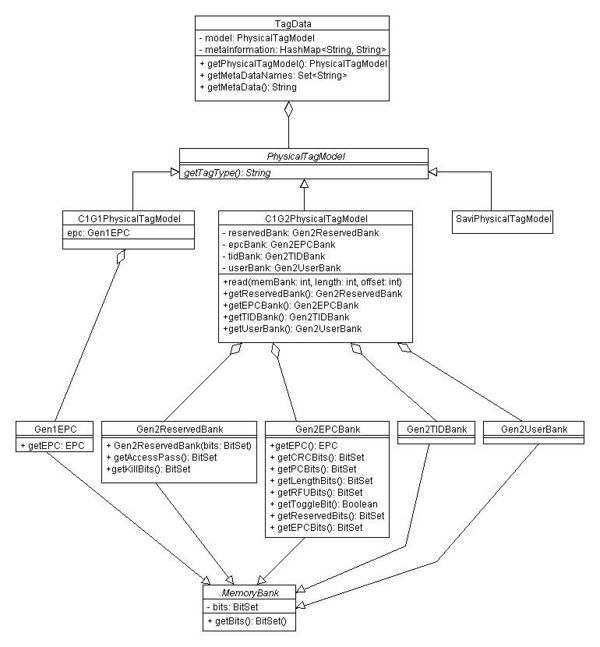ALE Tag Classes
From RifidiWiki
This document describes the design of the edge server tag data layer.
Contents
High Level
The purpose of the tag data layer serves three main purposes
- To provide a base set of classes that reader adapters can use to store tag reads and send them up to a higher layer in the edge server. In addition the the edge server can use these classes to store tag information which the reader adapters can use to write data to tags. This service is, for now, concerned with C1G2 and C1G1 tags.
- To provide the necessary algorithms to convert between various ID encodings and their representations. Currently this is primarily concerned with the EPC encodings such as SGTIN and GID. This service allows a bit string to be converted to a URN representation, for example.
- To provide hooks that allow some other aggregating, filtering, or reporting services to use the data that has been collected. For now this is primarily concerned with ALE.
It is important to note that these services, while now aimed at an implementation of EPC Gen1 and Gen2 tags and using ALE to aggregate and report data, are general enough to support future extensions. For example, it is possible to use ALE to report non-epc data that is not stored on a physical tag adhering to a EPCGlobal spec. Therefore the three main services are distinct and are loosely coupled.
Physical Layer
The point of the physical layer is to provide
